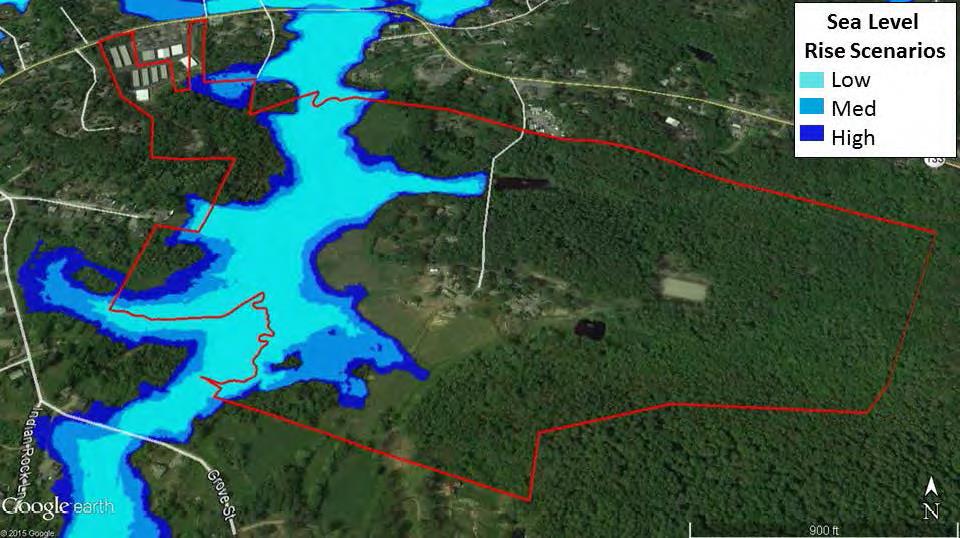The Essex Historical Society and Shipbuilding Museum (EHSSM), is a unique institution nestled along the…

Marsh Adaptation Strategy Tool (MAST)

As part of the Great Marsh Resiliency Planning project, the National Wildlife Federation and Ipswich River Watershed Association convened a group of land conservation professionals and local Conservation Commissioners to take a look at places where salt marshes might be migrating in the Great Marsh. A modeling tool developed by GEI Consulting called “MAST”, the Marsh Adaptation Strategy Tool (MAST), seeks to help inform coastal land prioritization decisions as sea level rise causes marsh migration.
Through a “voting” process by the committee members, the tool examined the interactions among a diversity of ecosystem service values, local topography, and possible sea level rise on 11 land areas throughout the 6 coastal towns in the planning project. By ranking these values over future scenarios of sea level rise, the tool aims to inform and support coastal land management decisions before and during upland conversion to wetland.
The study shines light on issues of prioritization and gradual landscape change that can be considered in both the regional vulnerability assessment and in the adaptation plan. Specifically, it could help land conservation organizations and municipalities evaluate conservation priorities and opportunities among these or similarly-situated Great Marsh parcels.
To read the final report, click here.




Comments (0)